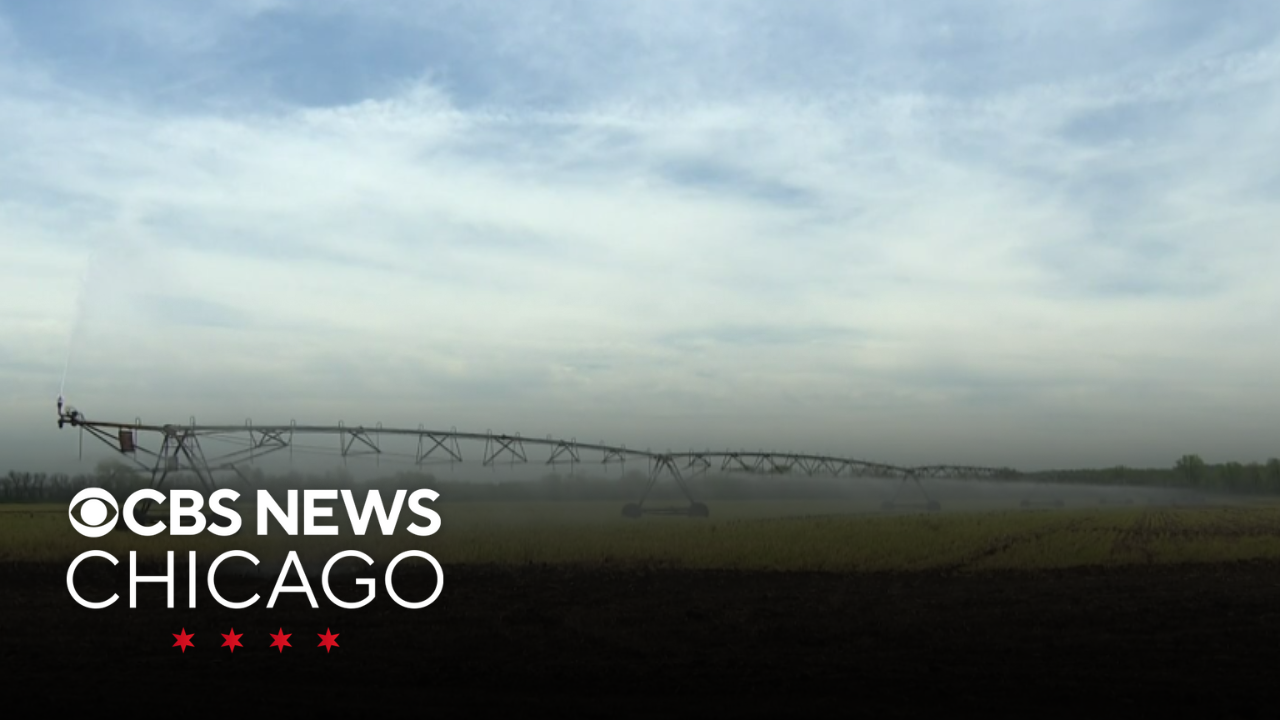U.S. tariff truce with China isn't really comforting for Illinois farmers
The most heated trade war in decades has cooled off for now, and Wall Street loves it — posting big gains on Monday.
The U.S. had been slapping fresh 145% tariffs on products coming into the country from China. Meanwhile, China responded with 125% tariffs on incoming American items.
In a joint statement released by The White House on Monday, the U.S. and China on Monday announced that they would substantially lower tariffs for 90 days. The agreement was struck over the weekend in Switzerland, where Treasury Secretary Scott Bessent and U.S. Trade Administrator Jamieson Greer met with a Chinese trade delegation.
Starting Wednesday, May 14, both countries will lower tariffs by 115%, according to the White House. That will bring the U.S. tariff on Chinese imports down to 30% from as high as 145%, and China's rate on American goods down to 10% from 125%. The 10% baseline tariff and other U.S. measures will remain in place.
UBS Global Wealth Management projects the U.S. tariff on Chinese imports will ultimately settle around 30% to 40%.
However, the tariff trim announced Monday is not doing much to calm the concerns of Illinois farmers — and no Illinois industry does more business with China than the agricultural sector. Out in soybean country in Marengo, Illinois, the end of planting season is near.
"We have to deal with Mother Nature. We have to deal with markets," said John Bartman of Bartman Farms. "We have plenty of things that are out of our control."
For over 180 years, the Bartman family has navigated that uncertainty — delivering corn, wheat, and soybeans to the world. But this latest round of uncertainty strikes differently.
"This is a manmade problem, and this is something that can be fixed," Bartman said. "This is bad governmental policy that's affecting farmers
The effect on Bartman is a fresh mentality focused on simply getting through the seasom.
"A hundred percent of the soybeans that I grow are exported [to] Asia, and a lot of it goes to China," Bartman said, "and so that's a major hurdle for us. If we lose that market, we're really going to be hurting."
Bartman added that he believes his farm is indeed on the cusp of losing the Chinese market.
Illinois farmers sell nearly $1.5 billion worth of product to China every year. No other industry comes close, and that figure has also soared in the last decade.
But farmers are entering a challenging period, as competition from Brazil and Russia intensifies. So do the tariffs coming down make it more likely that Illinois farms like Bartman's can remain a player in the game with China?
Bartman could only say, "You'd like to think so."
Todd Main represents the Illinois Soybean Association, whose members are watching these talks with their largest trading partner closely.
"We hope that the talks continue and that they become fruitful, and that, you know, we can continue to sell our products around the world, and help feed the world," Main said, "and so I think we're going to have to take a wait-and-see. Yes, we want to be optimistic. Yes, we want to have it be successful. But at the same time, you know, we have to sort of trust, but verify."
For those that know land, trust on this matter is a slow grow.
"I'm not really optimistic right now at all, honestly," said Bartman said.




